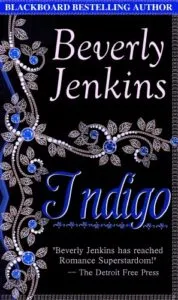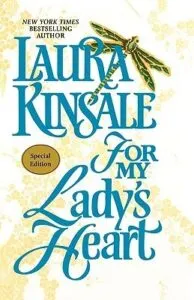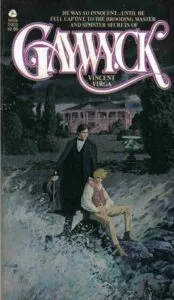
Here’s Why It’s Worth Diving Into “Old-school” Romance
If you’re a newer romance reader, your introduction to the genre may have come from one of the recent blockbuster contemporaries like Red, White, & Royal Blue or The Love Hypothesis. And if you’re like most romance readers, you’re hungry for more. The good news: there’s incredible abundance. And I’ll encourage readers to seek out writers beyond those writing today.
To talk about old-school romance is to wade into really murky waters. Lots of people dismiss romances older than 20 years or so out of hand, on the assumption that they don’t meet our current feminist sensibilities. The truth is much more complicated than that. First of all, let’s give older authors and readers more credit than that. You can find some really subversive stuff in these old books. Not to mention, there are plenty of very popular and celebrated romances written today that don’t appeal to my feminist sensibilities. Moreover, while I don’t set my values aside while I read romance, I don’t expect every book I read to perfectly reflect my values back to me. A, that’s boring. B, that kind of thinking is, I hate to say it, not that different from what’s driving book bans, even if the end outcome looks different. Let books be messy while also criticizing them vigorously.
Nonetheless, there are obviously caveats when reading “old-school” romance. There is often violence, including sexual violence, so readers should beware. The kinds of relationships represented are much narrower in scope than we find in romance today. Some romances rely on flat-out racist tropes — sheik romances, to give one example. Others are carrying water for larger and troubling viewpoints, like Gone With the Wind. These can be worth reading at an academic remove, more to examine what ideas they promulgate and how they reflect their time of creation than to, you know, have a fun time. So I’m not suggesting you take any old paperback you find to the beach. But if you get some good recommendations for old-school romances, there are plenty of benefits. I’ll detail a few.
Masterful Storytelling
There are two common complaints I have with many contemporarily-written romances. One is that sometimes not enough time has passed for me to believe a couple has truly fallen in love. An older romance, like Beverly Jenkins’s classic Indigo, lets time pass. The characters part and come back together. When they are together, it’s not always high stakes. They make mud pies together, for goodness sake. While Jenkins’s older romances remain eminently fresh and readable, the pace of storytelling can be different to contemporary readers. And while Jenkins’s most recent, To Catch a Raven, is a fast-paced thrill ride I devoured, I also love a book I can savor, a book that takes the time it needs to tell its story.
Another complaint is my personal distaste for significant side plots that have nothing to do with the romance. A typical way this manifests is in chunks of a book devoted to a main character’s career track. If old-school romances are supposedly out of touch because the female characters don’t have jobs, romances featuring working women are not automatically feminist and certainly not automatically good. There are plenty of ways to investigate gender and power that don’t involve something as reductive as one’s job.
A great example of this is Laura Kinsale’s For My Lady’s Heart. The couple, Ruck and Melanthe, are apart for a good chunk of the book (which is already BEEFY), but everything they’re up to in that time is both exciting to read and further develops their characters AND relationship. And even though Melanthe is a literal princess who loves naps more than anything, her role in the story is anything but passive.
Crackerjack Writing
One of the most annoying stereotypes of genre fiction is that it’s “poorly written” as compared to literary fiction. In reality, there’s a spectrum of quality across romance writing, and literary fiction for that matter. I crave romances written by authors who can turn a phrase. Give me writing that teeters on overwrought, rich with description and atmosphere. I devour dialogue that’s a touch too poetic to ever be spoken by a living human extemporaneously. To me, that matches the heightened emotions in romance. The relationship is the point of this book; let’s enjoy language that makes the stakes feel as high as they are to the characters.
My preferred place to find this style of writing is in gothic romance. I need all the creepy manors with ambiguously sinister characters and florid descriptions of seaside caves or whatnot. If you’re purple-prose curious, why not check out Gaywyck, regarded as the first gay gothic romance. That book begins, “I resemble my mother physically. When I summon her into time present, I become young as well.” Instant yes for those gothic Dorian Gray vibes!
Or check out Olivia and Jai, a biting and fierce historical romance set in 19th century India, written by an Indian author whose pen name was Rebecca Ryman. That one is less purple prose and more Big Important Statements, like “There would be suspicions and pain, losses and gains–oh yes, gains!– and always with them would be that past never wholly forgotten. It had not yet been fully lived out, perhaps; it would resist healing balms, and some scars would remain, always itching faintly.” Yes, please, tug at my heartstrings! Also, a character literally says, “You should have killed him when you had the chance,” and my reaction was very eyeballs emoji.
Honestly, many of the still-beloved old-school romance authors had a way with words. The dominant narrative reduces them to people handy with a euphemism for genitalia. But read them for yourself to see how the creativity extends much further than that.
Literary History
I don’t want to be all, read the classics, but you know what? Read the classics! Telling you to read the classics within genre fiction is different than telling you to read War and Peace (though I also think War and Peace is great). The romance authors of today are standing on the shoulders of giants.
I won’t gatekeep and say you’re not a capital-R Romance Reader until you’ve read X, Y, and Z books. But I will say choosing an old-school romance or two that appeals to you will only deepen your appreciation for your beloved tropes and relationship dynamics.
You’ve Convinced Me, Now What Do I Read?
Perfect! I’ve peppered some recommendations throughout this article, but there’s much more to dive into. Sarah MacLean and the Fated Mates podcast help keep the love for old-school romance alive. Search Maclean’s Read More Romance page for the term “old-school,” and see what catches your eye. Furthermore, the Trailblazer episodes of the Fated Mates podcast will introduce you to many of the greats who are still with us.
Author Anglina M. Lopez has a great list of recommendations on her website. The NPR list of the 100 best romances includes many old-school faves. The Loose Cravat Substack provides excellent criticism of classic titles. Here on Book Riot, our unusual historical romance list delivers some newer titles along with older bangers. And talk to the longtime romance readers in your life. First, if they hand you an old paperback, appreciate that cover art! And if its spine is cracked to open at a certain page, start right there…














